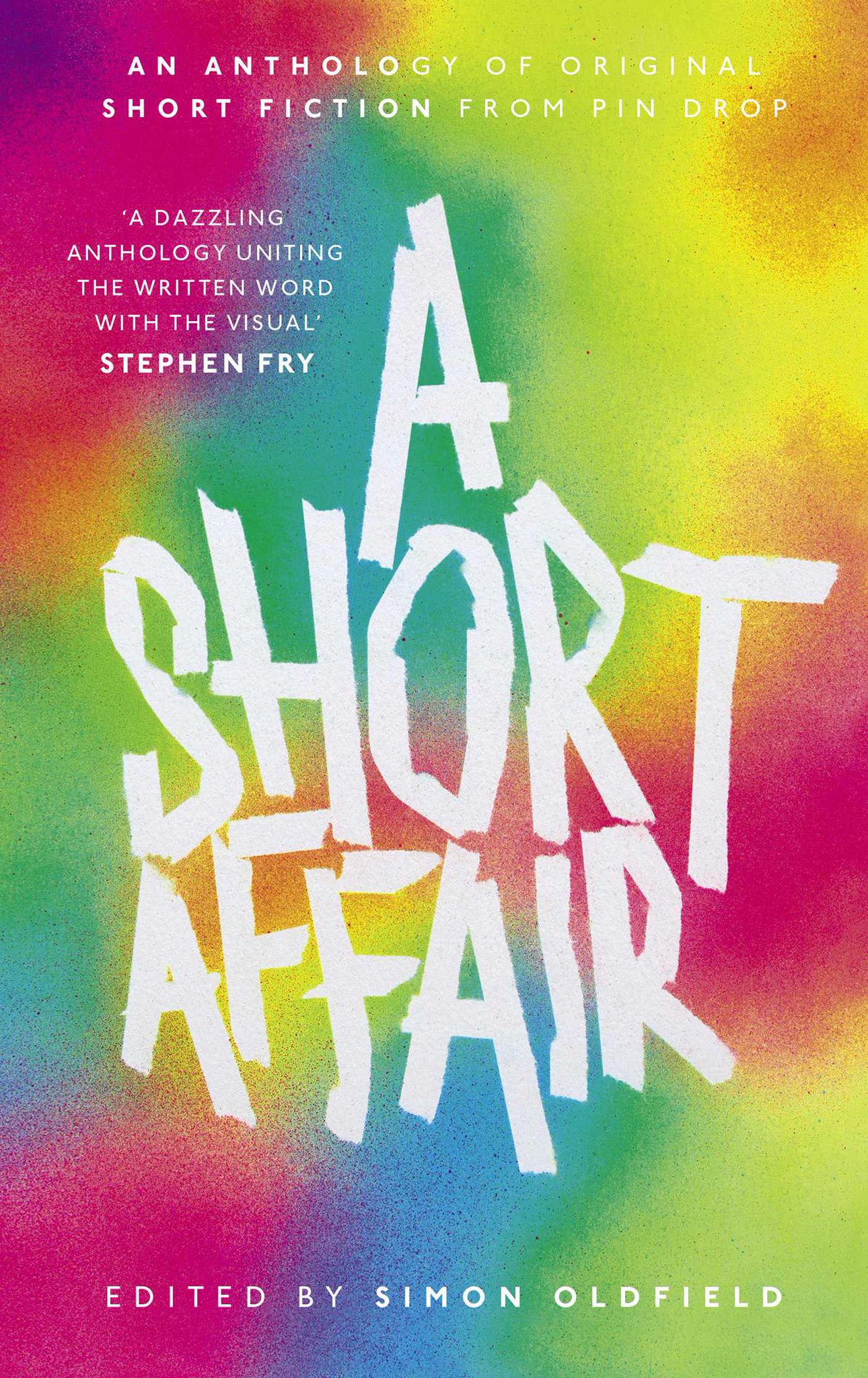We’re delighted to report that CFLA13 winner Jarred McGinnis celebrates inclusion in a major short story anthology this autumn, alongside literary giants including Lionel Shriver, Will Self and Ben Okri. He agreed to let us pick his brains and is here to share some thoughts on writing, publishing and the CFLA.

I have rare moments of grace when external validation doesn’t matter. I write and am content because I know just how hard and fleeting good writing can be. But, I am a sinner first and it was nice to hear someone else’s voice say, ‘keep up the good work’. More important to me and my writing has been getting to know people at Creative Future and the support you guys have provided me over the years.
What have you been up to in the interim?
Oh this and that… Mainly raising two little girls, but through the fog of persistent tiredness, I’ve been scribbling away at a longer piece of work. Actually, the story that won the Creative Future Literary Award is the basis of one of the chapters and I’ve just signed with literary agency Janklow and Nesbit.
How did your contribution to the short story anthology A Short Affair – a brilliant collection with stunning images – come about?
The story was the only one I was happy with while we were away on paternity leave with my first child. I saw a link to the competition on twitter and had a punt. A year later, the folk at Pin Drop liked the story enough to put it in the collection.
It’s a yearly competition so I’d encourage your readers to submit. You’ve missed the 2018 competition but that give you time to write!
http://pindropstudio.tictail.com/product/a-short-affair-signed-first-edition
Your name sits alongside giants of the literary world. How does that feel?
What excites me is to see my writing sitting beside other stories that I truly admire. Two examples that immediately come to mind are Panic Attack by AL Kennedy and These Silver Fish by Anne O’Brien. I was really impressed by the formal range of the collection. Collections can sometimes be limited variations of the same ‘kind’ of story. Simon Oldfield, the editor, has put together a collection that demonstrates the gorgeous mercurial tricksiness of the form. I’m thrilled to see my story included in that.
Tell us about the inspiration behind your powerful, unsettling story Rough Beasts?
It came from lots of places, which is why I think it worked as a story. The opening visuals came from a youtube video of a boar coming out of the Baltic sea (link https://www.youtube.com/watch?v=56hMsZ9o2VE). I was amazed by how people just passively watched this frightened animal thrash around. It just wanted to get away from all the noise and tall bald pigs. I felt sympathy for the poor creature. Europeans have the illusion that nature is this benign beauty laid out for our pleasure. It’s not. What I saw in that video was a lack of respect for the plight of that animal and that is ultimately why people got hurt.
At the same time of this video, dead Syrians were washing up on beaches and no one cared beyond retweeting a Guardian article they read. There was vehement anti-immigration rhetoric of Brexit and Trump and Baby Boomer men in their aggrieved entitlement proudly voting against their self-interest. It was all feeling very apocalyptic (hence the title), still does. Added to that was me plumbing the unfathomable depths of anxiety that come with being a father for the first time. All this got jumbled around in my brain until ‘Rough Beasts’ tumbled out.
Did you see Declan Jenkins’ brilliant artwork prior to publication? And if so, did you have any input?
I didn’t see it until the book came out, but I would have never dared to give input. Pin Drop did an incredible job matching the rawness of my story with Jenkins’ woodcutting. I couldn’t be happier. My writing has always had a collaborative/multi-disciplinary approach. In previous collaborations I’ve done I keep my brief to a minimum and let the story do the work. I’m much more interested in an unmediated creative response to my work. The trick is to find incredible artists and trust them, which I suspect Pin Drop already knows.
If you could give one piece of advice to anther under-represented writer what would it be? (You can give more than one piece by the way!)
Writing is the same as it ever was. Keep at it until you write something that can’t be ignored. Then do that as often as possible, remembering to take frequent breaks to be a decent human. Prepare for a thousand different disappointments. There is no complete success in creating art. Other than that, I have no advice you haven’t ignored a thousand times before. You have to make your own mistakes. Go easy on yourself when you make them.
As an under-represented writer, you’re especially fucked. Then again, if you are an under-represented writer that means your background has already taught you that. You already know that you are under-represented in government, in board meetings of FTSE 100 companies and on book shelves. You are under-represented, because you have no power. As a writer you have zero power. Write because you have to and seek justice elsewhere.
The real horror of being an under-represented writer means readers (including editors and agents) have been exposed to a limited number of narratives concerning your background. You are going to be constantly nudged and pushed to shape your story to accord with their preconceptions. You have to decide if the baubles of publication, the white man dangle before you are worth your Manhattan (see https://en.wikipedia.org/wiki/Manhattan#History for how that turned out). As I said, as a writer, as an ‘other’, you have no leverage but that only you can tell your story. So you better damn well tell it the best you can.
Thanks for popping by, Jarred, and all best for your future writing career.
If you’d to like to buy the anthology, you’ll find it in all good ‘bricks and mortar’ bookshops and online here.



